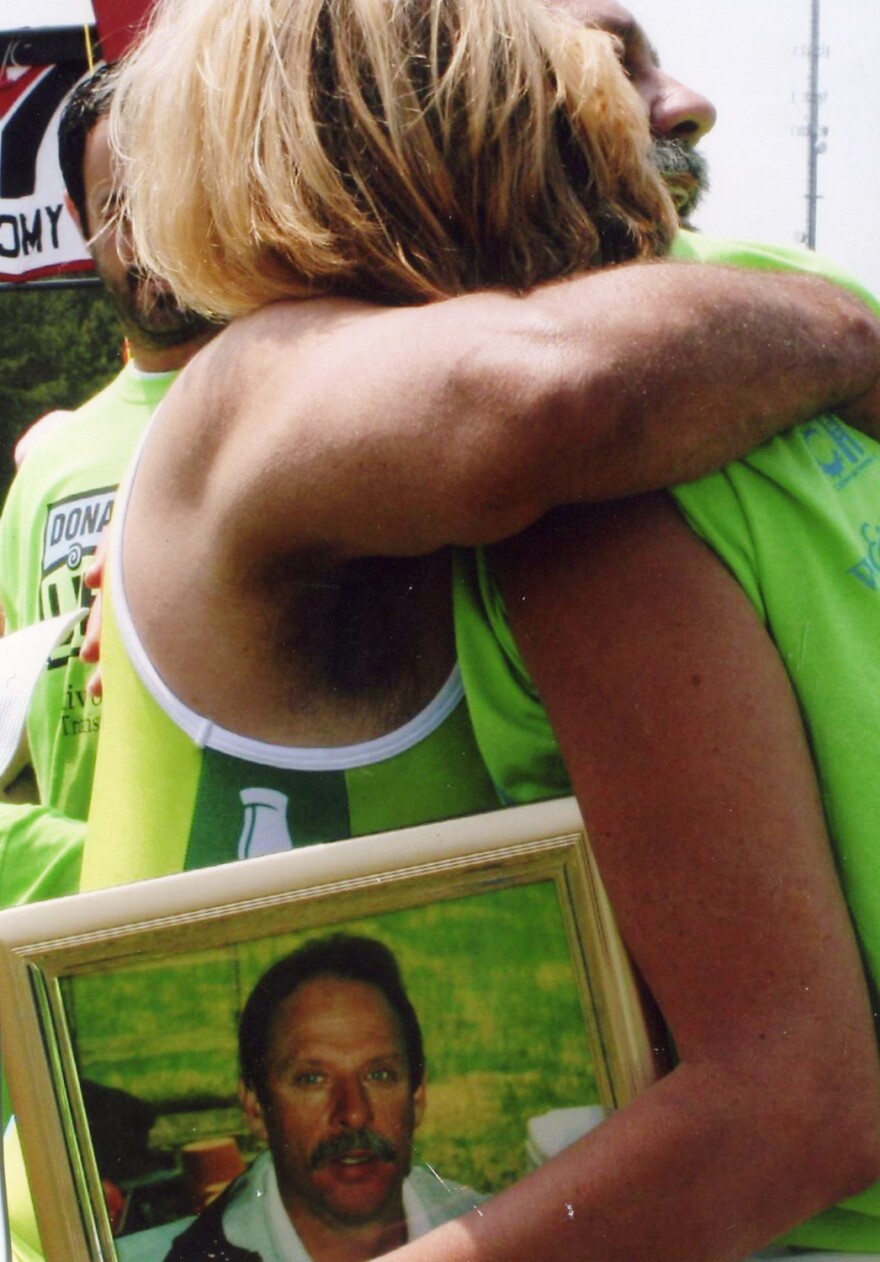Today, Rick Bounds is a 58-year-old triathlete, with four competitions and a 100-mile bike ride to his credit.
But six years ago, he was diagnosed with a nonhepatitis liver disease. Rick's doctors told him that if he didn't have an immediate kidney and liver transplant, he would die.
He was given eight months to live and told that his chances of getting organs were slim.
'No Hope'
"I woke up my husband. I said, 'Baby, you've got to get up,' " says 50-year-old Dorothy Biernack. "He had a construction company. I said, 'All your guys are going to be waiting for you.' And then he stood up, and he turned around and looked at me, and said, 'Baby, something doesn't feel right.' "
Marty Biernack had a stroke immediately. By the time he and Dorothy got to the hospital, things had taken a turn for the worst.
"They said, 'There's nothing else we can do for him,' " Dorothy says. "So, one of the worst things I ever had to do was to open up that door with his mother and our children looking at me for hope. And I had to tell them that there was no hope."
"Within minutes of finding out that he was going to pass away, we decided to donate his kidneys and the liver."
Marty died on July 20, 2007. Rick Bounds received his kidney and liver transplant on July 21, 2007.
'I Was Allowed To Live'
Dorothy wanted to meet the donor recipient.
"I just wanted to see, did I help them? Did they get a chance at life?" she says during a visit to StoryCorps in Baltimore.
So, the two met in May 2008.
But, she wondered, why was it so important for Rick to meet his donor's family?
"I was struggling with the fact that I was allowed to live and someone passed," Rick tells her. "And um, I wanted a picture of the person who had been taken and allowed me to live."

He was surprised at how young Dorothy was when he first saw her, though she understood, "because a lot of times people expect the widow to be a little old lady walking in."
"It was hard for me because, here I was sitting across from you eating dinner with literally parts of Marty in me, allowing me to be able to do that," he says. "And um, I think what set me at ease was your smile. Just like this morning when you got out of the car. You just have a real bright smile, and it just kind of allows people to relax."
The First Triathlon
Three days after they met, Dorothy decided watch the triathlon Rick was competing in.
She and her daughter met him at the finish line holding a big picture of Marty.
"I remember going up and giving you a hug, and some woman took that shot of you and I hugging," he says. "And you don't see our face but you see Marty's face, peering out right at the camera."
"That picture means a lot to me, too, because all you can see is the person who brought us together," Dorothy says. "I feel like Marty still has a purpose. And that's to help you live your life, and help you see your grandchildren, and your wife. And I couldn't ask anybody nicer to be able to live with my husband helping you."
Now, Rick and Dorothy get together a couple of times every year.
Audio produced forMorning Edition by Katie Simon with Yasmina Guerda.
Copyright 2020 NPR. To see more, visit https://www.npr.org.



